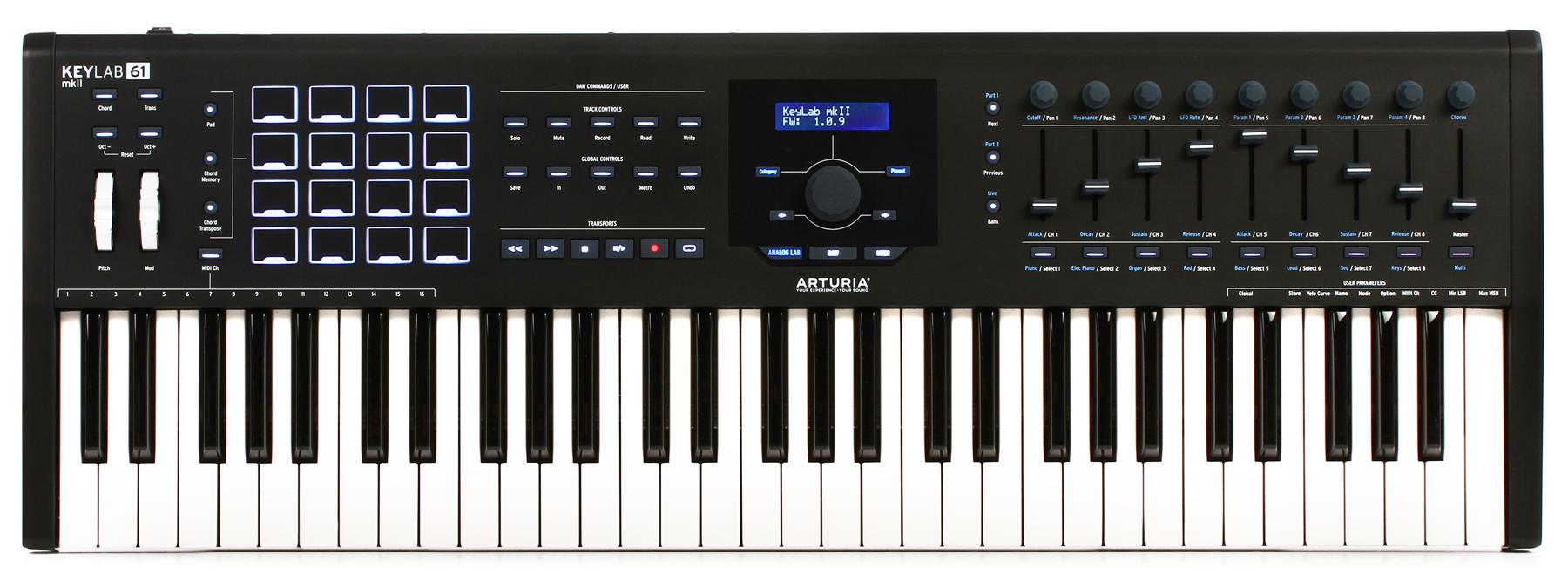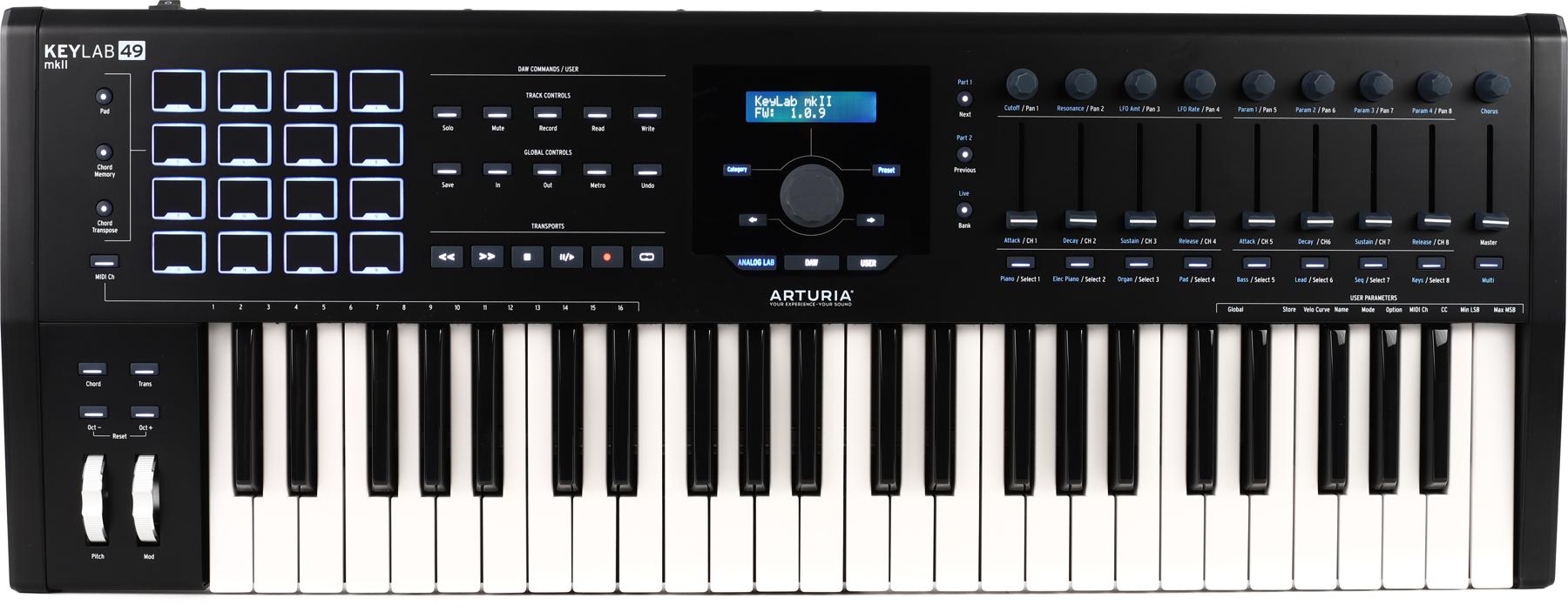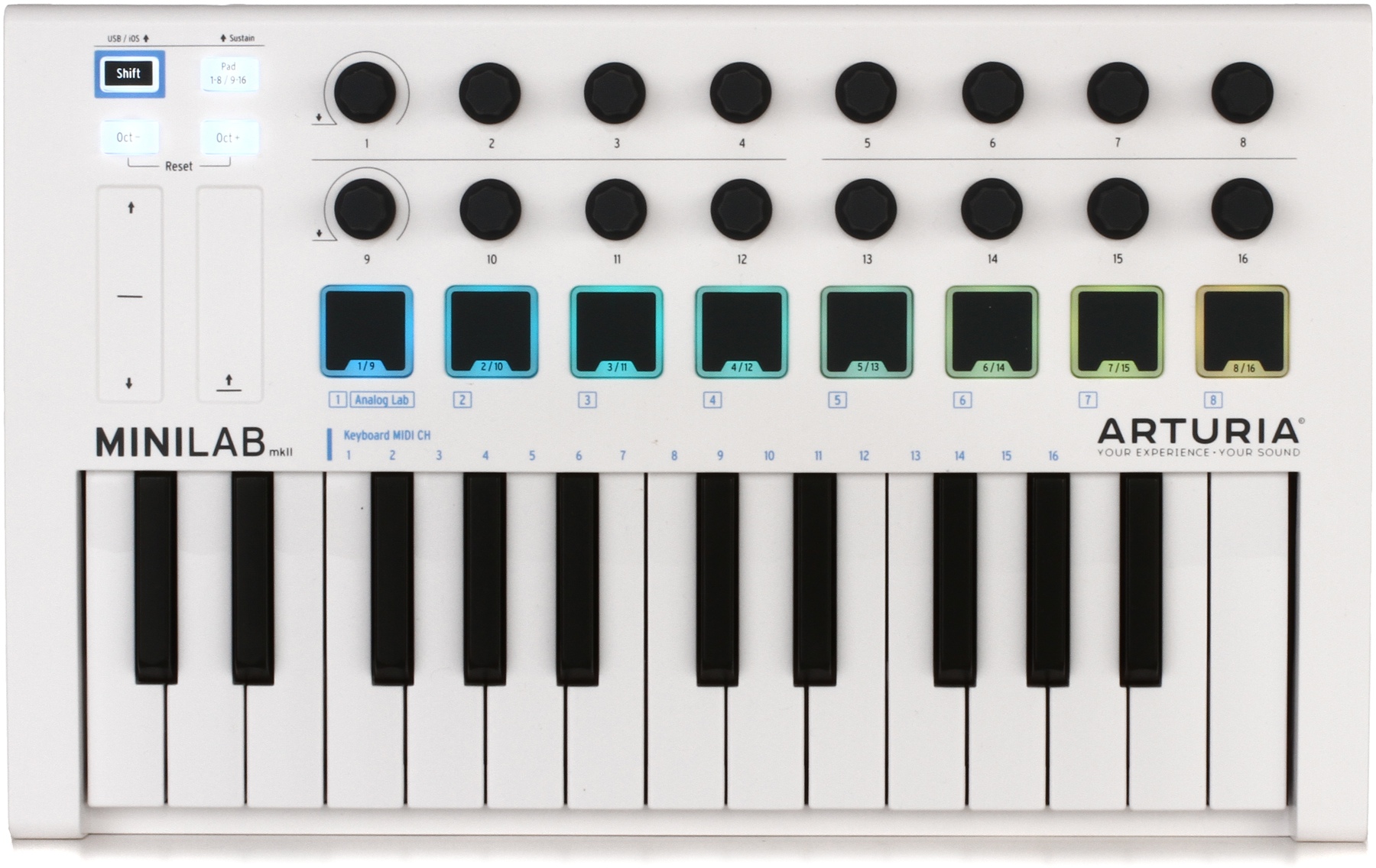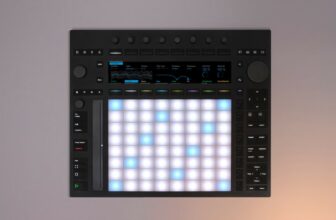Arturia KeyLab MKII Review – Different Versions Compared
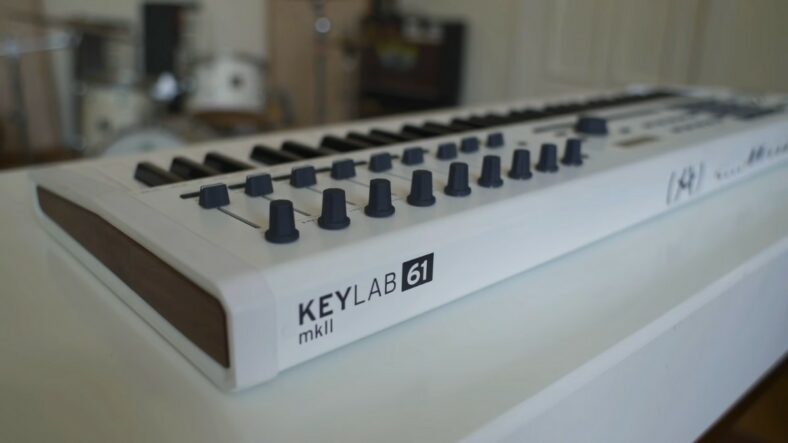
Contents
Arturia KeyLab MKII
Arturia has become the go-to for musicians looking for software that emulates analog synths. So it was no surprise when they launched their own line of MIDI controllers and, eventually, hardware. In June 2019, they launched the KeyLab 88 MKII and, subsequently, smaller versions of the controller.
Are you thinking of getting one for yourself? Do you need advice on which version of the KeyLab MKII to get? Then read our review here, in which we take a look at some of the good things and some of the bad. Maybe this will help you make a choice.
Hardware
The KeyLab MKII is available in different forms. You can choose between 88, 61, 49 keys, or the MiniLab, which has 25 keys. You get the same software bundle with all of them except for the MiniLab.
Apart from the keys, they also have pads, assignable knobs, and faders which let you tweak and control parameters. Since they all have MIDI connectivity, they do not require software for setup, and you can use them with any DAW.
Notable Features: The weighted keys emulate the piano. This makes it a delight for composers and arrangers who use it primarily for recording purposes. Similar to other MIDI keyboards, this also has an LCD display to change presets without having to glance at your computer.
Pro: Since you can set it up as an electric piano, it is most definitely for you if you have a piano background and want to access the Arturia sounds, which emulate classic piano models and even analog ones.
Con: The price point. This model is only for studio use, and it would be unwise to use it for live performances.
Notable Features: This, too, comes with additional faders and rotary knobs, which can be used to adjust your sound without involving your computer.
Pro: Has all the features of the 88-key version but is a lot more compact.
Con: Not for those who prefer weighted keys. Although this one, too, does have velocity control.
Notable Features: This offers the best of both worlds in terms of the availability of software and being compact-sized.
Pro: The separate DAW mode, Analog mode, and User mode let you switch seamlessly between recording, playback, and practice.
Con: This is not very affordable in comparison to the 61-key model.
Notable Feature: If you are looking for a travel-sized version of the MKII, then you can also consider getting yourself a Minilab MKII. It’s also quite affordable.
Pro: The MiniLab is a 25-key velocity-sensitive controller with pitch bend and modulation strips. It also has knobs that you can assign to different parameters of your DAW.
Con: Although this is ideal for those looking for a live performance tool or a controller, the major drawback is that you will not get full access to all the software. Arturia only offers Analog Lab Lite instead of the full software.
Software
One of the main things that draw musicians to Arturia is its plugins. The software is compatible with Mac and Windows machines.
When installing the software, make sure you have adequate space on your computer because some of them can be bulky. The C.P.U. usage can be high at times, and it is best to render your MIDI track to an audio track if your project is bulky.
The installation is simple and does not take much time. Let us look at the different plugins and DAWs offered by Arturia:
Ableton Live Lite
Musicians often complain about Ableton Live being very expensive. The good news is that on purchasing an MKII, you get a free copy of the Ableton Live Lite.
While you have access to all ableton plugins and Arturia works nearly seamlessly with this DAW, there is a 16-track limit. This is a great tool for beginners who are looking for an easy-to-use tool and explore all the Arturia sounds more than anything else.
Analog Lab
Analog Lab is easily one of the best plugins to have been released. It is easy to use, and you have access to a vast library of high-quality sounds. Since Arturia is known for its emulation software, Analog Lab also offers sounds reminiscent of modular synthesizers. If you are looking for the classic sounds of a synth such as a Buchla, Prophet, mellotron, or a Nord without necessarily buying them all, then this is a great option.
Apart from that, if you are inspired by artists such as Four Tet, Lady Gaga, Daft Punk, Georgio Moroder, Aphex Twin, Depeche Mode, Air, Kraftwerk, or even Pink Floyd, you can use the patches, presets, and sounds that are special dedications to them.
The visual interface is easy to navigate, and you can modify all the parameters. But like any other plugin, to modify your sounds, knowledge of oscillators, filters, and the different kinds of waves is essential.
The only drawback to the Analog Lab is probably the fact that it can often overload your C.P.U. if your computer is not powerful enough. You need at least 2GB free space and 4GB RAM to install and use this.
Piano V
The Piano V is not just for professional musicians looking for a near-perfect emulation plugin but also for those who incorporate piano sounds in their work. Since the sound of a piano is so rich and deep, stock plugins in DAWs do not quite cut it.
Arturia’s Piano V comes with presets that let you choose between different Grand and Upright models. Once you pick a piano you like, you can also adjust the mic placement on it and pick a reverb plate. There is also a Master EQ that can be used to mix and master your piano sound.
It requires a machine with 4GB RAM and at least 2GB of free disk space. It is compatible with almost all DAWs.
Verdict
To best honest, if you are just starting your journey in music and learning how to produce music on a DAW, then, in all honesty, you probably don’t need this just yet. There are many other affordable MIDI controllers on the market. As far as the plugins go, most DAWs have great stock plugins that will meet your requirements.
If you are a composer and produce background music or film scores, then you can consider buying this. A lot of professional musicians have been using Arturia products, and the MKII is versatile and a good fit for almost every genre.



